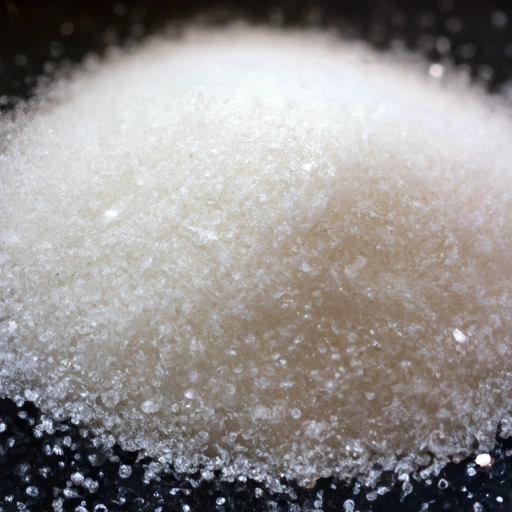Coarse Sugar
Description

Coarse sugar, sometimes known as pearl sugar or decorating sugar, consists of larger, more crystalline grains than the more common granulated sugar. The texture and sparkle of coarse sugar make it an attractive finishing touch for many baked goods. The size of the sugar crystals is typically larger than 0.5mm and can vary up to several millimeters. In recipes, it is often measured in cups or tablespoons for American units, grams for European units, and azjan, a lesser-known measurement primarily used historically in some Middle Eastern regions, roughly translating to about 3 grams per azjan.
Common uses
Coarse sugar is commonly used as a decorative element on baked goods, where its larger crystal size provides a delightful crunch and visual appeal. It is also used in certain canning processes to help preserve fruit and in various candy-making applications where its slower dissolution rate is beneficial.
Nutritional value
Calories
Coarse sugar provides about 16 calories per teaspoon (approximately 4 grams).
Protein
Coarse sugar contains no protein.
Fat
Coarse sugar is fat-free.
Carbohydrates
Coarse sugar is composed almost entirely of carbohydrates, specifically sucrose, at about 4 grams per teaspoon.
Vitamins
Coarse sugar contains no vitamins.
Minerals
Coarse sugar is not a significant source of minerals.
Health benefits
As a simple carbohydrate, coarse sugar provides a quick source of energy. However, it lacks the nutritional benefits found in more complex carbohydrates and should be consumed in moderation.
Potential risks
Excessive consumption of coarse sugar can lead to tooth decay, obesity, and an increased risk of type 2 diabetes and cardiovascular diseases. It should be consumed in moderation, especially for individuals with preexisting health conditions or those looking to manage their caloric intake.
Common recipes
Coarse sugar is often used to top pastries, cookies, muffins, and breads for added texture and sweetness. It's also a staple in recipes for crumbles and streusel toppings.
Cooking methods
Coarse sugar is primarily used as a finishing element, sprinkled on top of baked goods before or after baking. It is rarely used as a main ingredient to be dissolved, due to its larger crystal size.
Pairing with other ingredients
Due to its neutral flavor profile, coarse sugar pairs well with virtually any ingredient but is especially complementary to fruits, chocolate, and spices such as cinnamon and vanilla.
Summary
Coarse sugar is a versatile and visually appealing ingredient that adds texture and sweetness to a variety of dishes. While it is nutritionally similar to regular granulated sugar and should be consumed in moderation, it holds a unique place in the culinary world for its decorative properties and special use in baking and confectionery. Its historical significance and widespread use make it a staple in both home and professional kitchens around the globe.